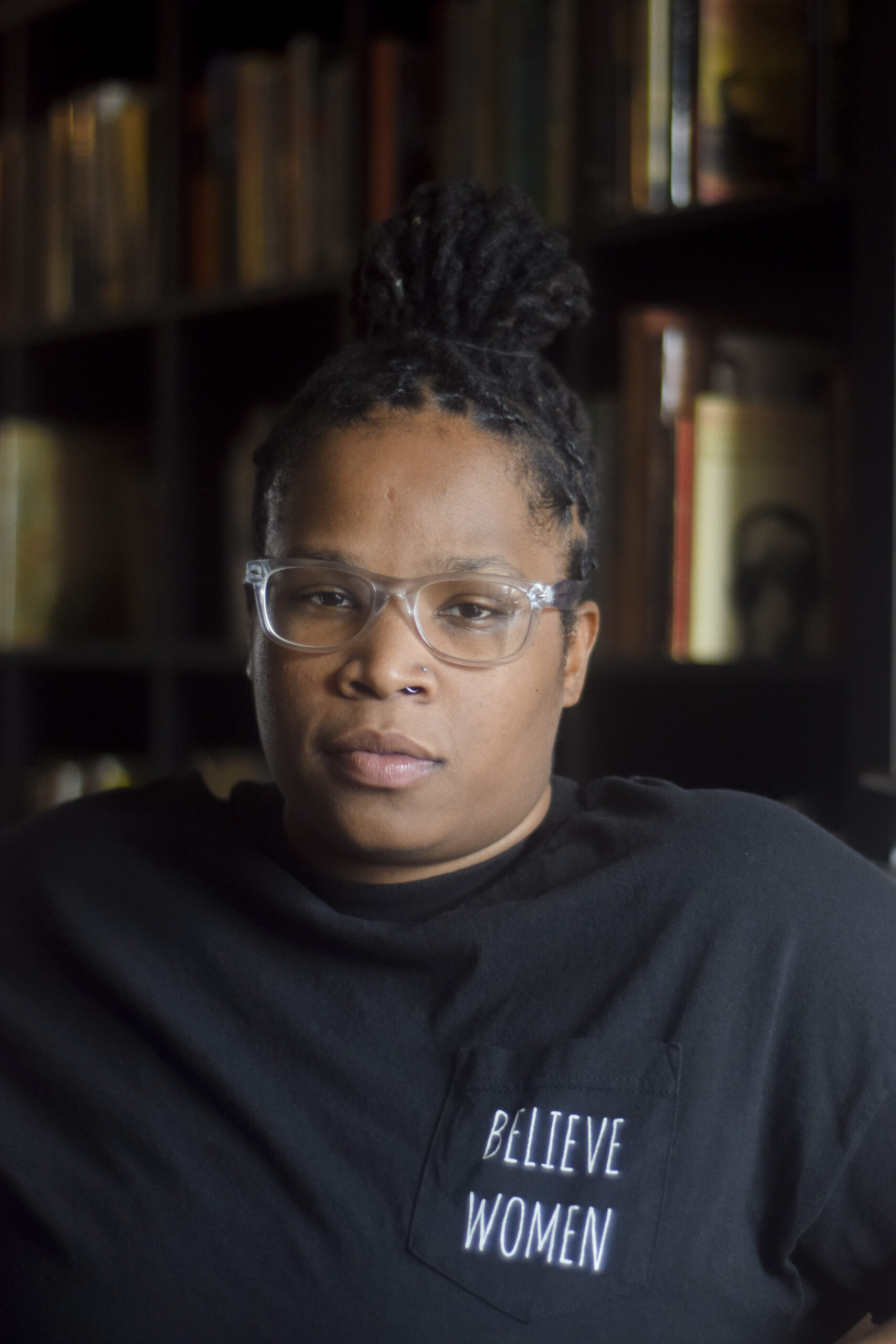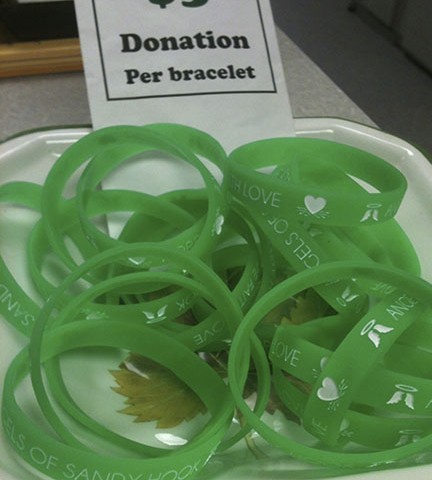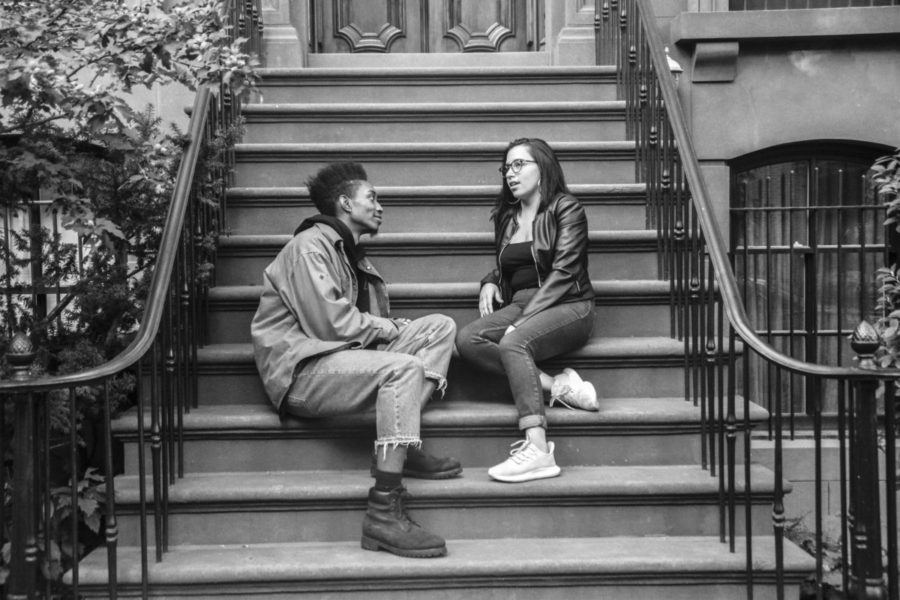They see it too: the political moment, people being shot in Las Vegas, forest fires burrowing through neighborhoods. How are you talking to your students? I ask because they are talking. They talk about race, climate change, sexuality, always pop culture, and the ever-changing terrain of social media. When looking for spaces to have crucial conversations in tumultuous times, many students turn to the classroom. We also see them lean on writing as a tool to work through ideas and salve what burns. As educators we need to be able to facilitate these conversations, but what do they look like? How do they sound? When is it a good idea to toss the day’s lesson plan and encourage plaintalk? In bell hooks’ Teaching to Trangress: Education as the Practice of Freedom, she accounts, “I came to theory because I was hurting—the pain within me was so intense I could not go on living. I came to theory wanting to comprehend—to grasp what was happening around and within me.” Here, Dr. Hooks echoes many of my students, and if we insert writing in the place of theory, I can hear my students exactly. Their voices waning, in the backdrop of our country.
In this series of interviews with educators across disciplines, we are exploring these questions, and putting the students first. We recently sat down with New York native Roya Marsh. Roya is currently a poet-in-residence at Urban Word NYC and primarily teaches middle and high school. She describes herself as a “queer Black woman first. A spoken-word poet, youth mentor, activist, and amazing shower singer.” Roya was a finalist in the 2013 Poetry Idol, 2013 Inspired Word Slam Master Jam Champion, 2014 Nuyorican Grand Slam Champion and captain of the first all-female slam team in the tristate area, representing Nuyorican Poets Cafe. She ranked second in the world at the Woman of the World Poetry Slam.
Roya and I spoke in her home, and her energy, strategy, and unmatched cool left me grateful and ready to get back to my students to share her wisdom. Roya Marsh, is a nationally ranked poet/performer/educator/activist. She is the Poet in Residence with Urban Word NYC and has the dopest sneaker collection to date.
M.L. Thompson: When did you begin teaching?
Roya Marsh: I began teaching in 2011. I was teaching preschool, which was probably one of the coolest jobs I ever had. Just learning how not to take myself and everything I was carrying into a room full of people. They taught me so much more than I think I could have learned in all my years of schooling.
…this is me being my Blackest self, me being my joyous self and sharing this piece of me with someone. To give that part of yourself, that there is the triumph.
MT: How did you start writing?
RM: I had always been writing. The earliest I can remember is being nine years old, and it was me writing in this notebook and hiding it under my mattress so none of my siblings found it to make fun of me. The first time I had performed on stage, my own personal writing, I was seventeen and we had a fashion show, I was always into fashion. From that moment, I didn’t have to hide it. Then MySpace was a thing. I would post on MySpace. I had a substitute teacher—and obviously now I see how unprofessional it was—but she was following everybody on MySpace. She was commenting, “Why won’t you bring this into class? This is dope.” She taught me how to put poetic language into a regular history essay.
MT: What themes are you writing into your poems?
RM: Black joy is my favorite theme. I think that every moment that I step on stage, even if I am doing a poem about my own sexual trauma or my mental illnesses, this is me being my Blackest self, me being my joyous self and sharing this piece of me with someone. To give that part of yourself, that there is the triumph. Outside of that I want to spread pride in sexuality, in presentation. I am trying consciously now with Black joy, queer, and trans identity. I want to be super visible with what is going on in the world, especially when it comes to people of color [PoC]. I think that those parts of me have to be embedded in the writing, and I can’t ignore any aspect of that. Otherwise I feel like the poem is not as true as it could be.
MT: Do you see these same themes and that same intention spilling over into your pedagogical practices?

RM: One hundred percent! I’ve developed a few curriculums, but one I am working on now is called Spark, Flame, Fire, so we actually are only looking at the work of queer or trans people of color. I know I am doing this work because there are so many young people who I will do a writing workshop with and use a Patricia Smith poem. And then one of the shortest lines in the poem, the one they’ve deemed insignificant, will be like, “But I’m also gay,” and for me that’s not something to hide. That’s not something to be ashamed of, and I’m coming from a place of privilege because I was not ashamed. I want them to feel the same freedom, and that’s why in my teaching, in my writing, in the artists I have picked for us to examine, I need all of those identities to be apparent. So that they know there are queer PoC writing and it’s not just me thinking this is important. I say to them, here is an entire anthology [Bullets and Butterflies: Queer Spoken Word Poetry, edited by Emanuel Xavier]. This is in print and it is in bookstores across the world, this is not just something that I am trying to push.
MT: How do you navigate grief and tension with the students, which often surround some of these topics?
RM: I always do a free-write first. I want them to know that it is super, super okay to feel a way, but I always tell them that writing itself is therapeutic, but it is not therapy. So when I see something in the writing that is a red flag, I take a look and then say, “Now you need to take this to the guidance counselor, because now you need to take the next step.” And for some students it isn’t language either, it can be how they use the page. If they are always writing within the margin and then the next time they write, I get four pages and it’s all over the place, something different is going on. It can be a positive difference or negative difference, but I don’t want to ignore that. In writing, some of my encounters have been with people who are absolutely afraid to be emotional. So when they write and the writing is melancholy, it’s because they won’t emit these emotions in person. All of it comes out on the page. Some of the writing seems way more drastic than it actually is because this is the moment when they’re letting all of it out. And in those moments I try to encourage the young people to express their emotions.
They can teach me when I need to sit down and when I need to let them rock.
MT: What would you say is your responsibility as a teacher teaching in 2017?
RM: My responsibility as a teacher is to do every single thing to ensure that these children do not die. That means their hopes, their dreams, a physical death, a spiritual death, an emotional death, all of it. I am trying to speak life into every aspect of them when I am in that classroom. I want them to see everything that is possible and more when I am up there in front, or when they are up in front of the classroom performing. I want them to see what power exists, not only in their writing, but in their physical person. I want to teach them that I am a student and they can teach me. They can teach me when I need to sit down and when I need to let them rock.

This interview has been edited and condensed.
All photos by LaQuann Dawson
Roya – @champagnepoet
LaQuann – @laquanndawson
M.L. Thompson – @dreamyuncle
M.L. Thompson is a second-year MFA student at The New School and a Teachers & Writers Magazine editorial associate.



